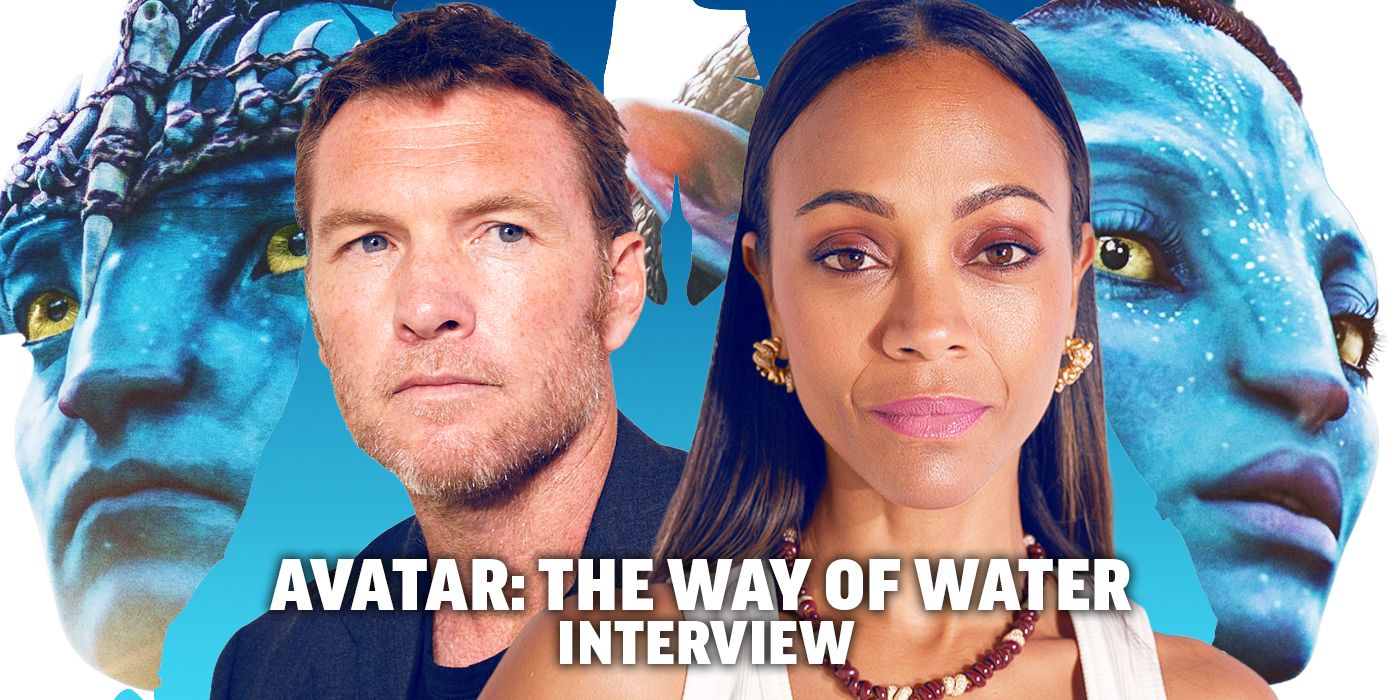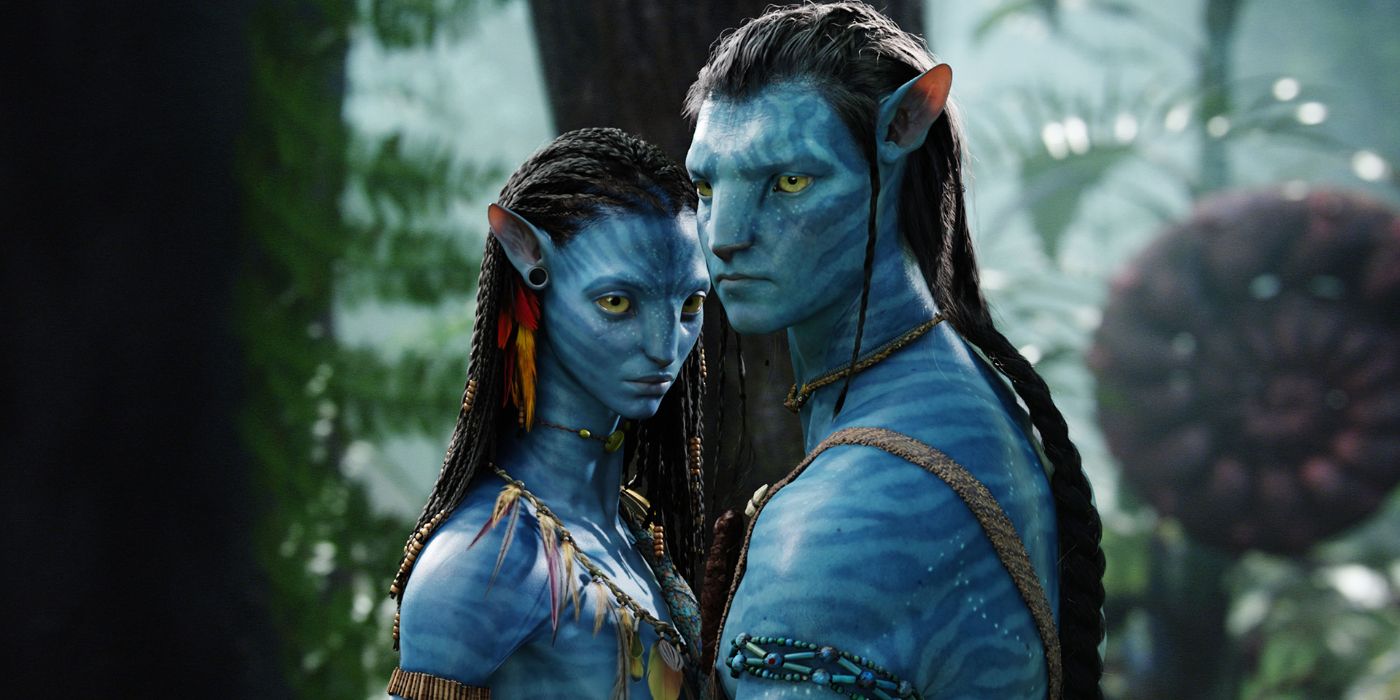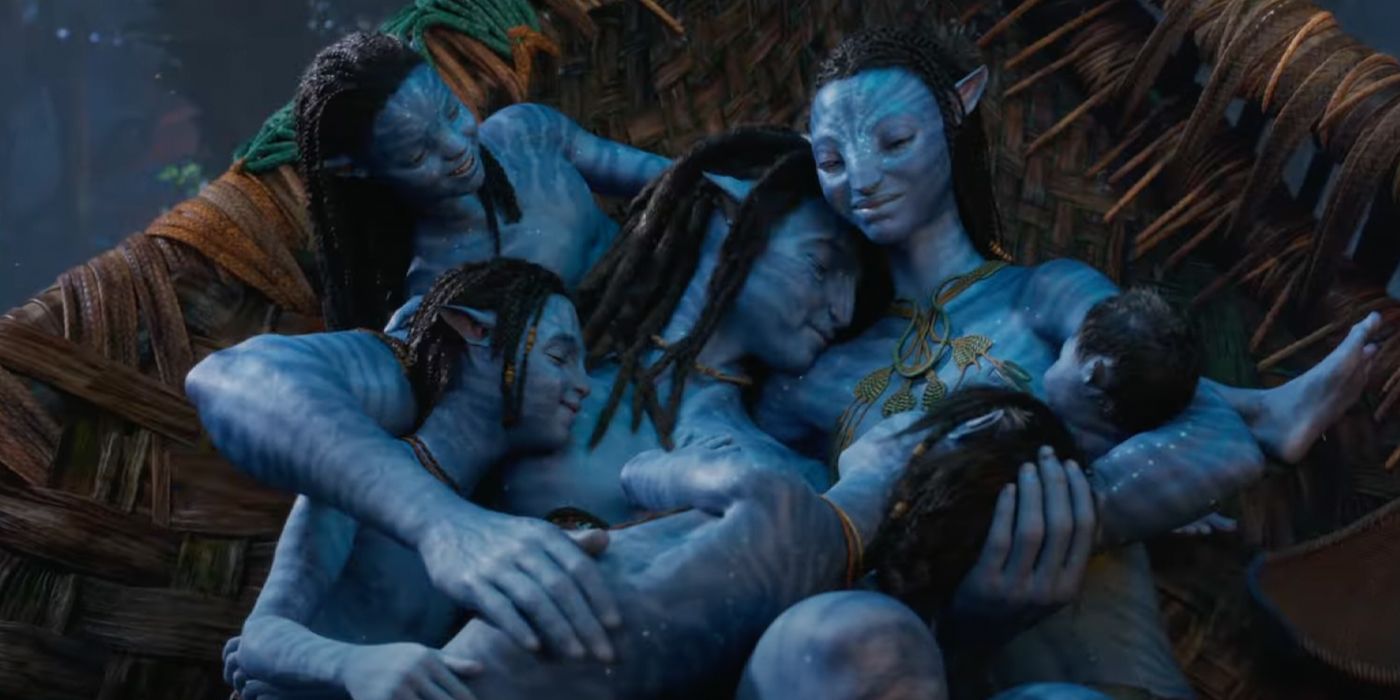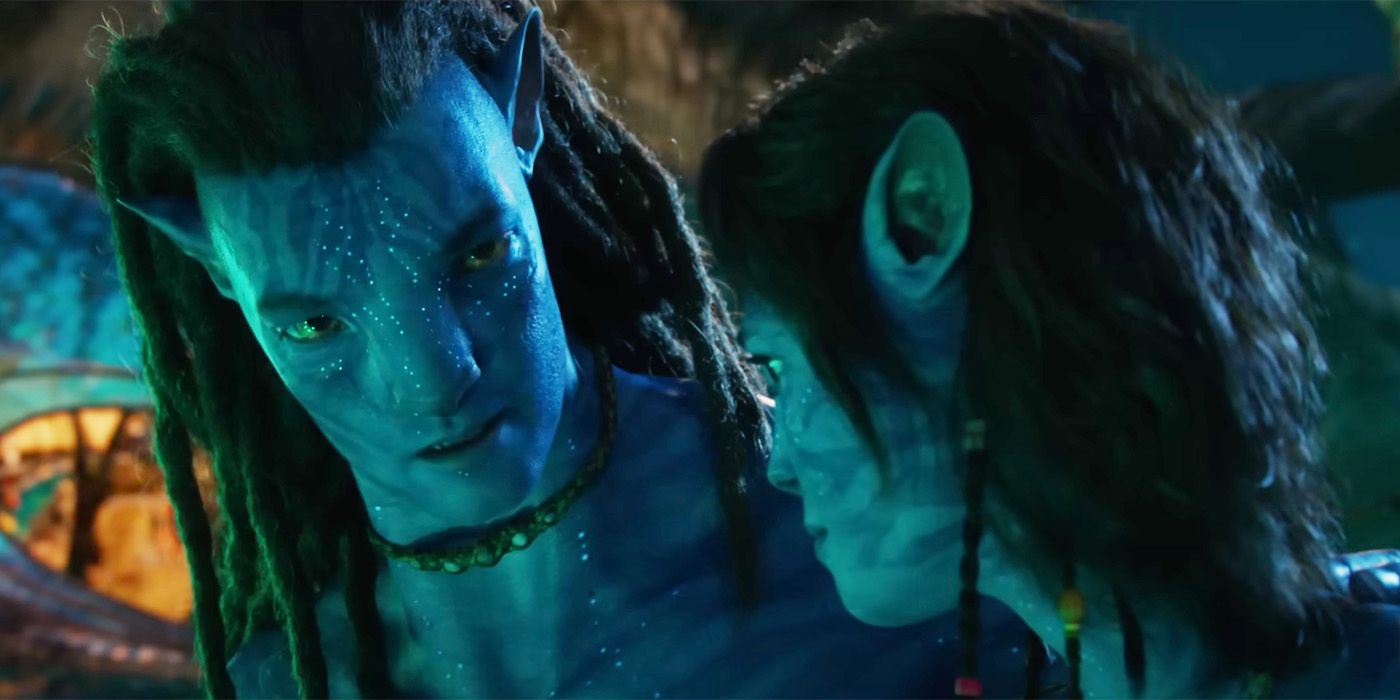Over a decade since the record-breaking release of James Cameron’s Avatar, the Academy Award-winning director takes us back to Pandora in the long-awaited sequel, Avatar: The Way of Water. In the first of Cameron’s projected four sequels, fans will travel from the dense jungle of the Omaticaya to the open ocean of the Metkayina clan.
Sam Worthington’s Jake Sully and Zoe Saldaña’s Neytiri now serve as the Omaticaya clan’s leaders and have spent the years since the events of the first film rebuilding their home and growing their family. When the "sky people" return to Pandora to continue their destructive pursuit of the moon's resources, and the moon itself, Jake faces a difficult decision. With four children, including their adopted daughter Kiri played by Sigourney Weaver, Jake chooses to flee with his family in an effort to keep his people safe from Recom Col. Miles Quaritch (Stephen Lang) and the RDA.
Ahead of Avatar: The Way of Water’s official theatrical release on December 16th, Collider’s Perri Nemiroff was able to sit down with Worthington and Saldaña to discuss the film. During their interview, Worthington reveals that Cameron gifted him an Avatar 1.5 script covering what went down between these first two films. They also discuss how the experience of working with Cameron has evolved since the first film, the difficulties of filming underwater, and the deep passion for the material everyone brought to set. You can watch the interview in full in the video above or read the full transcript below.
PERRI NEMIROFF: We do get the broad strokes of what happened between film one and film two for your characters, but I was wondering, are there any smaller backstory details that you came up with that we could now feel informing your performances in this movie?
SAM WORTHINGTON: Look, I'll give you this. Jim [Cameron] gave us a script of 1.5 that he wrote that shows the time between Avatar and Avatar: The Way of Water. And he wrote a full script and gave it to me and said, "Look, read this. This will fill in the blanks of what Jake's been doing." And I said, "When do we shoot this one? Because this is amazing." He goes, "No, no. That's just something I wrote over the past year to give you his backstory." And then I lent it to Zoe.
SALDAÑA: It was amazing.
WORTHINGTON: And I think you lost it.
SALDAÑA: No, I have it! I just never returned it. [Laughs]
Are there any specific details you can share from it?
WORTHINGTON: It was more about what they went through as a couple because their relationship was evolved at the end of the first one, but this was about literally them ...
SALDAÑA: The war. The war continued.
WORTHINGTON: ... having the kids and consummating and stuff like that, and the war. It gave us a good jumping-off point of where they were at.
Not that his plan isn't ambitious enough, but you make these next movies, and then you go back and you make a whole series of 1.5.
WORTHINGTON: Yeah, it's crazy that he wrote that. But he needed that to just know where Pandora had evolved to and where this love story had gone.
I was reading a quote that James had said about himself. He said he tried to be more emotionally present for the team on this movie. Could you both feel that and, if so, how has his approach as an actor's director changed?
WORTHINGTON: He's the best actor's director.
SALDAÑA: Yeah, he is. He is the best actor's director. There is a sense of family the second time around that felt to me like the natural progression of what had started back in 2006, 2007. Jim is like a fine wine. He just gets better in time, you know what I mean? He just keeps getting better and better and better. And now that he's plant-based, oh my god, forget about it.
WORTHINGTON: Yeah, he's got more energy than anybody. [Laughs]
SALDAÑA: [Laughs] It was wonderful. I think that back in 2006, there was this great deal of pressure to prove this concept. This was something that was conceived out of thin air that he just [couldn’t keep] for himself. He had to externalize this. I think it was hard for all of us to try to understand what was in his mind. And little by little, that's why he kept collaborating with us and showing us every process of it in order for us to understand what he was envisioning. By Avatar: The Way of Water, there was no need to prove. There was no pressure. It was just about following your heart, getting to go back to Pandora, and I think that everybody was just bracing themselves like, "Let's go!"
I have another quote for, Sam. I was reading an interview that Jamie [Flatters] had done. He specifically said, "James will either celebrate you or be your biggest critic. If he sees a problem, he's going to let you know about it." But then he goes on to explain that there was once a discussion between you and James that almost broke down, and it ended in you needing to meditate. Can you pinpoint what that scene was and then maybe how you overcame and collaborated on whatever the challenge was?
WORTHINGTON: Might've been underwater sometime because you can't communicate underwater, to be honest. And you can hear Jim underwater directing, so sometimes you get a bit confused of what's going on. I don't think it was actually a mediation between any conflict. I think it was more us trying to navigate what we're being told underwater and how to do that, and Jamie going [gestures]. I think it was more along those lines than a conflict.
SALDAÑA: Here's the wonderful thing about working with someone like Jim. Jim is expecting you to come with your firm beliefs in what you are doing. Yes, there is passionate discourses that have everything to do with our project because everybody walks in with a very selfless mindset. But the moment he yells, "That's a wrap," nothing is taken home with you because it's never about -- it never gets personal. So there is a lot of passion when you firmly believe in who your character is and where you are and what you're doing, but he kind of goes, "This is where you need to be in order for you to get here." And he welcomes that. He's like, "Come, come, come, come, come." But at the end, he's still the boss, you know? And those kind of experiences only make this project, this story better.
Avatar: The Way of Water debuts in theaters on December 16. For more, check out our interview with James Cameron below:




